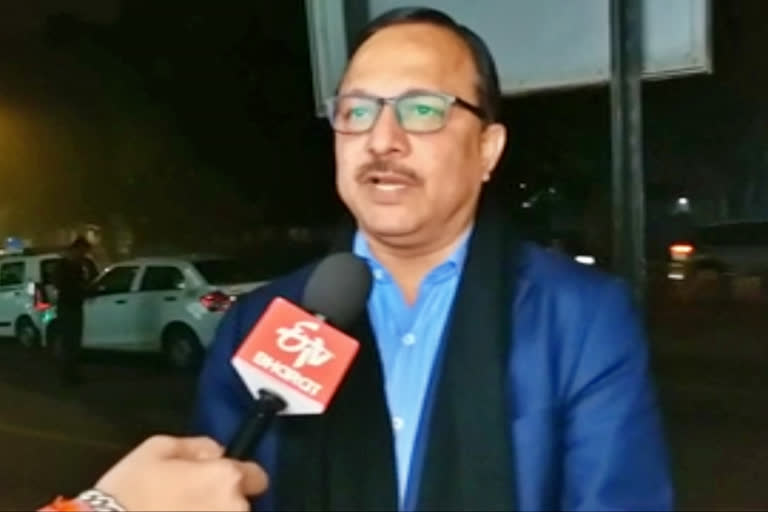New Delhi:The countdown for the Big Budget Day has begun. Union Finance Minister Nirmala Sitharaman will present the Narendra Modi government’s India Budget 2020 in Parliament on February 1.
Suggestions are pouring in, displaying the expectations of the people who are hoping that FM Sitharaman will deliver a balanced budget speech in Parliament.
Amid all budget-related discussions, ETV Bharat talked to Agricultural Economist Vijay Sardana, understanding how agriculture can revive the bruised economy and can help Indian farmers in doubling their income.
India needs farmer-oriented policies, says Agricultural Economist Vijay Sardana Below are excerpts from the Interview:
Q1. What can farmers expect from the upcoming budget and what measures are required on the part of the government?
Vijay Sardana-Right now in the agriculture sector, we are facing problems related to storage. The time for crop harvesting has arrived and the godowns of Food Corporation of India are already full. The government should allocate appropriate amount for the construction of cold storage and warehouses. This, in turn, will provide solution to many agricultural-based problems.
Secondly, the government should focus on oil production as the import of oil has increased. A scheme has to be developed for the farmers in connection with the land diversion after the production of surplus wheat and rice. Our Prime Minister has been saying that farmers should shift from agriculture to animal husbandry to double their income. But during this time raising livestock has become strenuous due to the shortage of feed and fodder. Ministry of Fisheries, Animal Husbandry and Dairying need to come up with relevant schemes.
We need to focus on improving the overall productivity as well. Minimum Support Price (MSP) cannot be increased every time as it will harm our exports. Mechanism and techniques to increase the production of small-scale farmers need to be introduced. In order to expect improvement in the field of agriculture, we need to do away with conventional thinking.
Q2. Agriculture Ministry says that due to small-land holdings, large-scale mechanization is not possible as there are more small-scale farmers in our country. Keeping this in view, how should the funds be allocated?
Vijay Sardana- Small-scale farmers have issues with tractorisation as they need proper agricultural equipment, tools, and resources to increase crop productivity. Not every farmer is receiving good-quality input (seeds, fertilisers, manure etc). There are around 6.5 lakh villages in our country and we still do not have a system that can assure them quality input.
Direct transfer of funds is not a persuasive option as it may lead to misallocation and misuse of funds. That's why the cases of loan-waiver are arising. We need to impart financial literacy and farm management in regional languages through Doordarshan or other mediums before we start transferring funds directly to the farmers.
Q3. Our Government has set a target of doubling of farmers’ income by the year 2022. Is it possible to achieve this target in the currently existing state of affairs?
Vijay Sardana- In the existing situation, there are two ways to increase the income of the farmers. The first way is by reducing the cost of production and the second way is to increase realisation. An increase in realisation leads to either inflation or an increase in government subsidies, so this module can not be used in today's time. So that leaves us with the first option- reduction in the cost of production.
Productivity per area cannot be increased nor the cost of production be reduced through traditional ways. The government is promoting mixed farming, organic farming, and agricultural biotechnology, but it has to see if these are giving the required results or not. Unfortunately, today, consumers are dictating the market. Not many consumers are ready to pay double the price of the product as our country is in the shackles of poverty.
The challenges faced by our country's agricultural sector is very different from other countries and, therefore, not all experiments are conceivable. Consumers are not concerned with the welfare of the farmers. Most of our policies are consumer-oriented and not farmer-oriented, which needs to be changed. For this, marketing reformation and technologies are required which can help the farmers to double their earnings.
ALSO READ:Union Budget 2020: Amritsar farmers demand separate budget for agriculture sector
